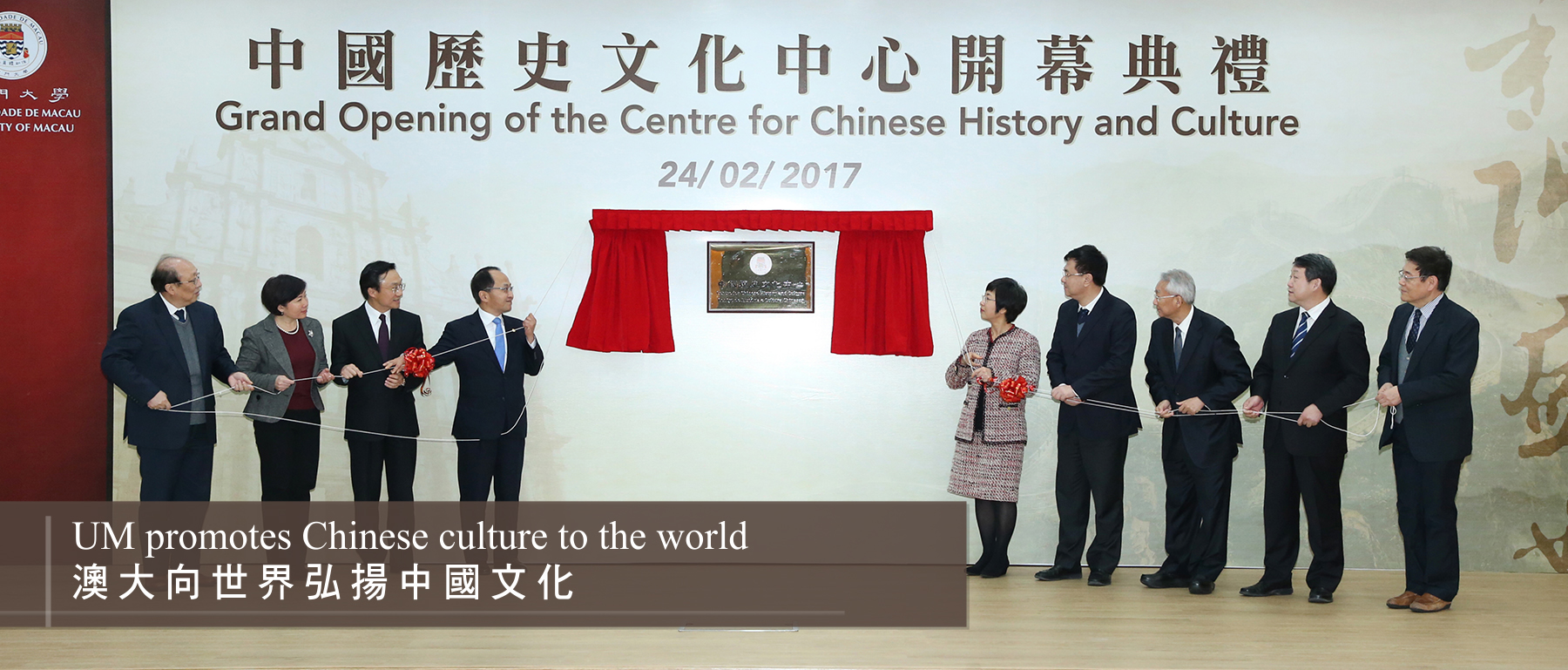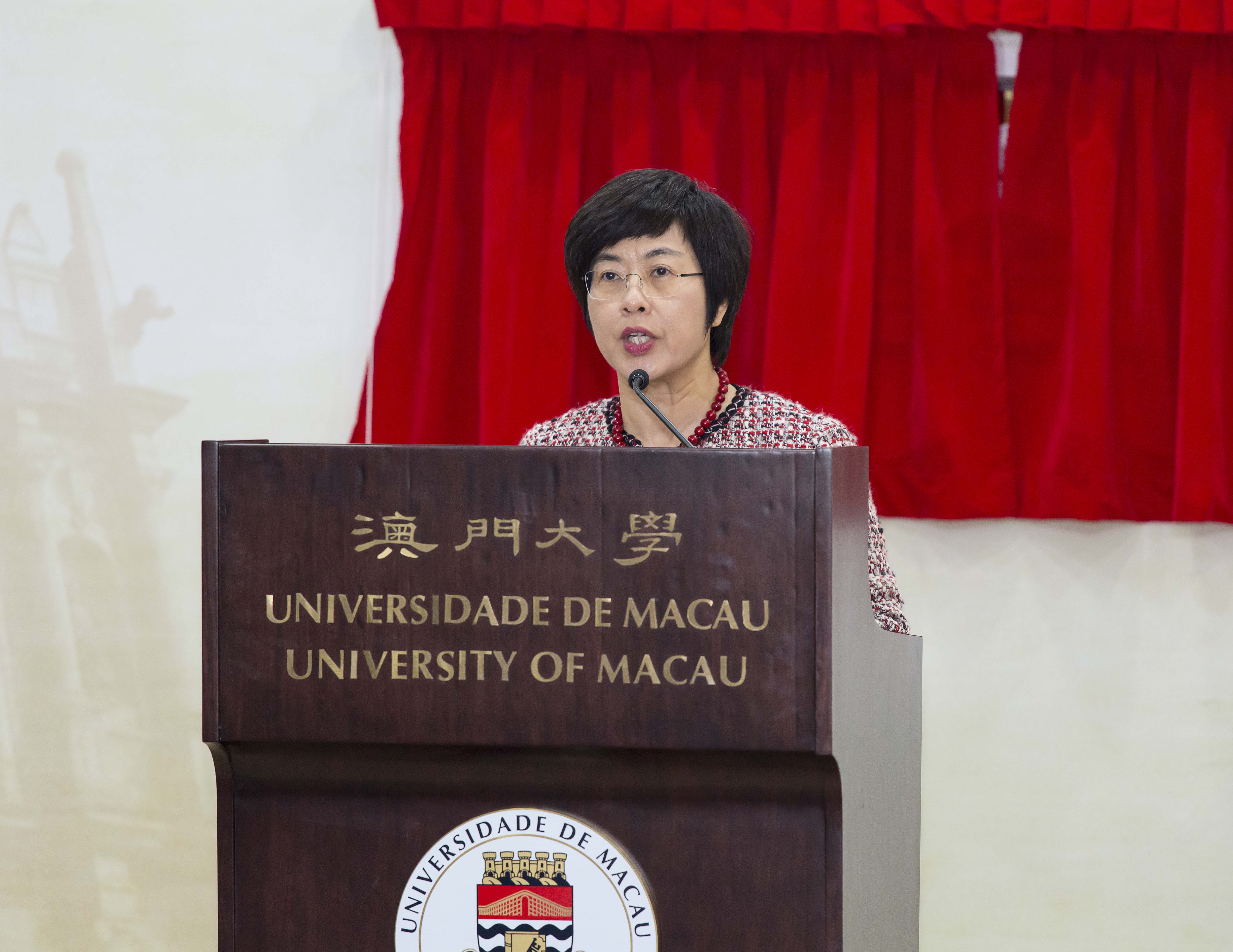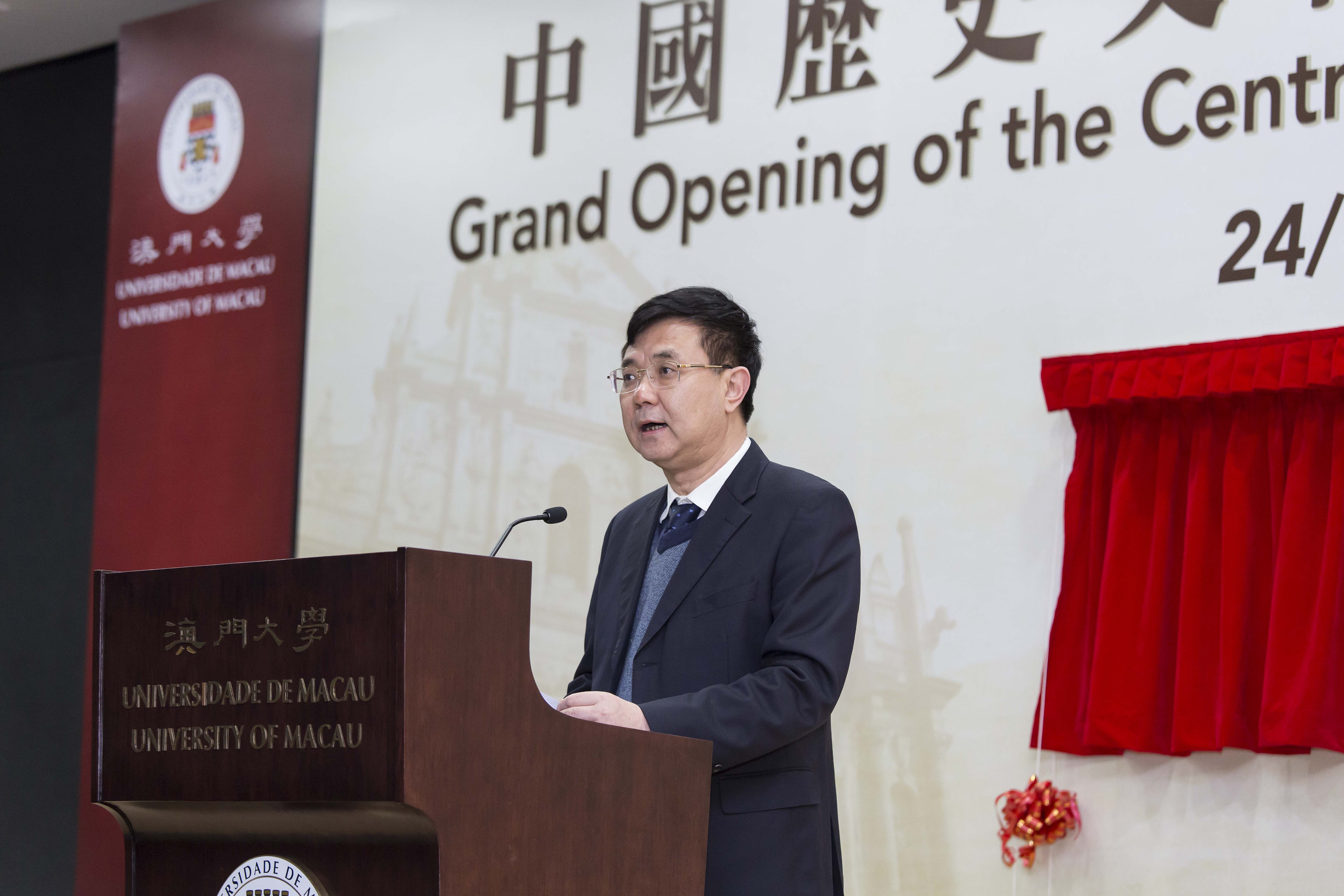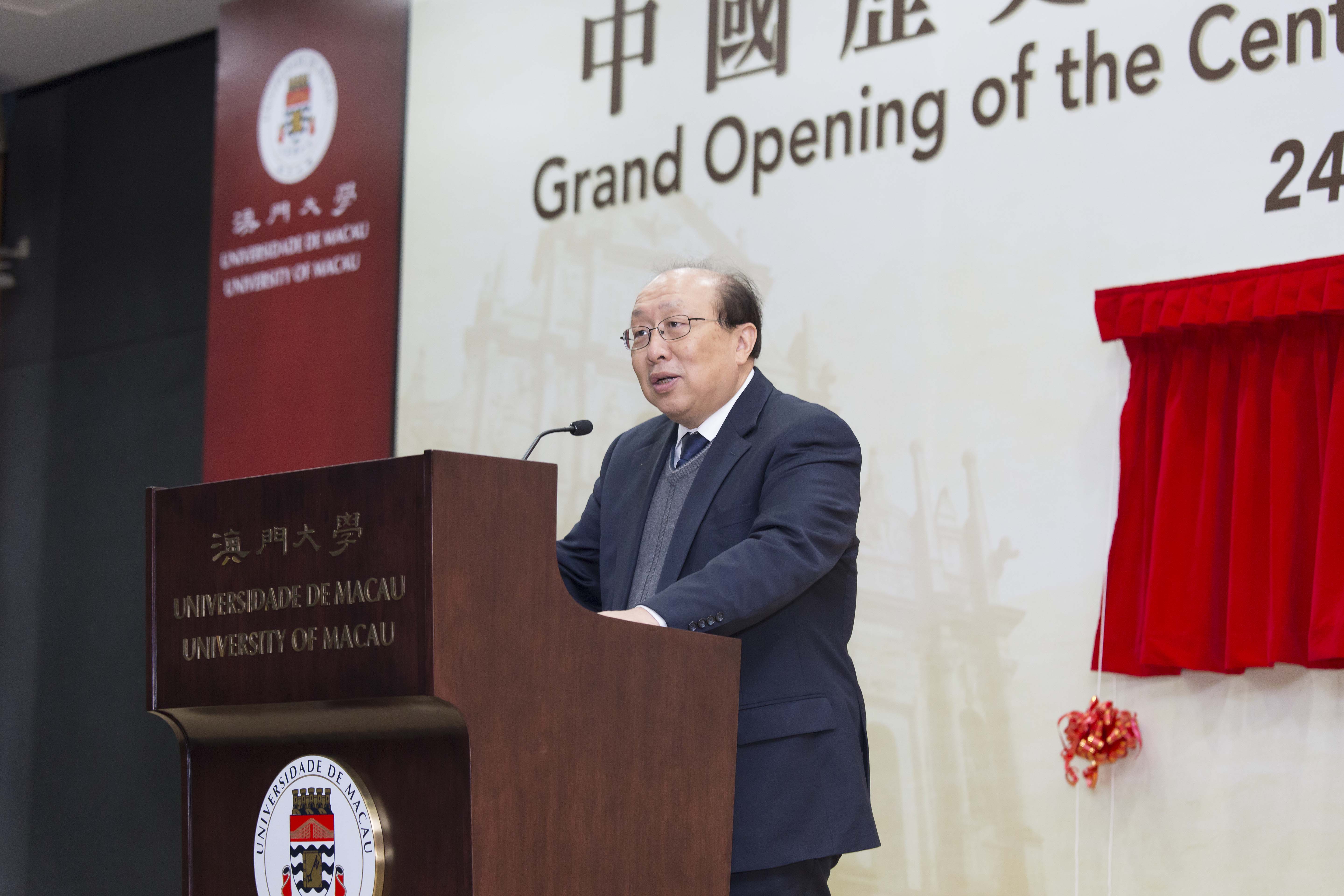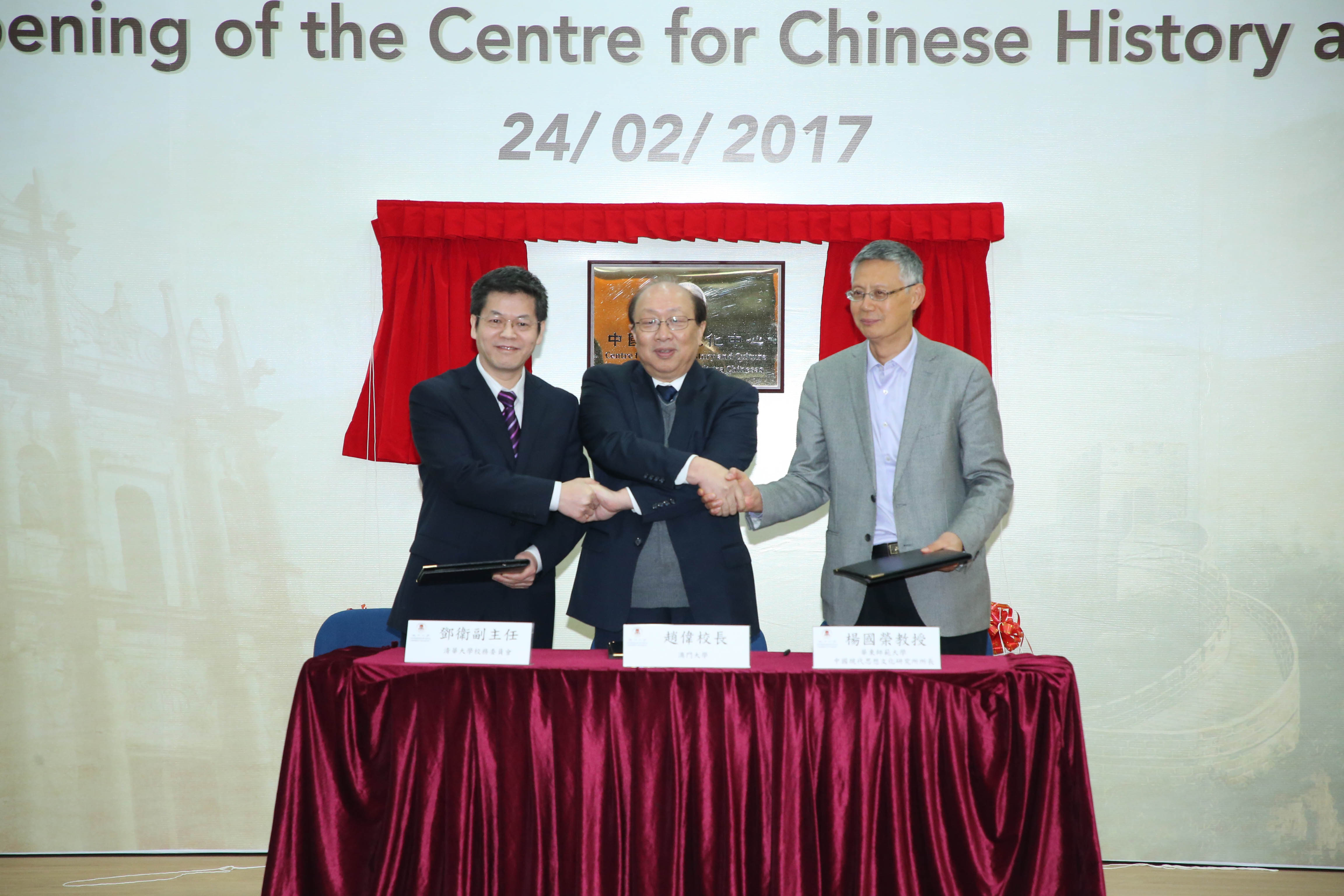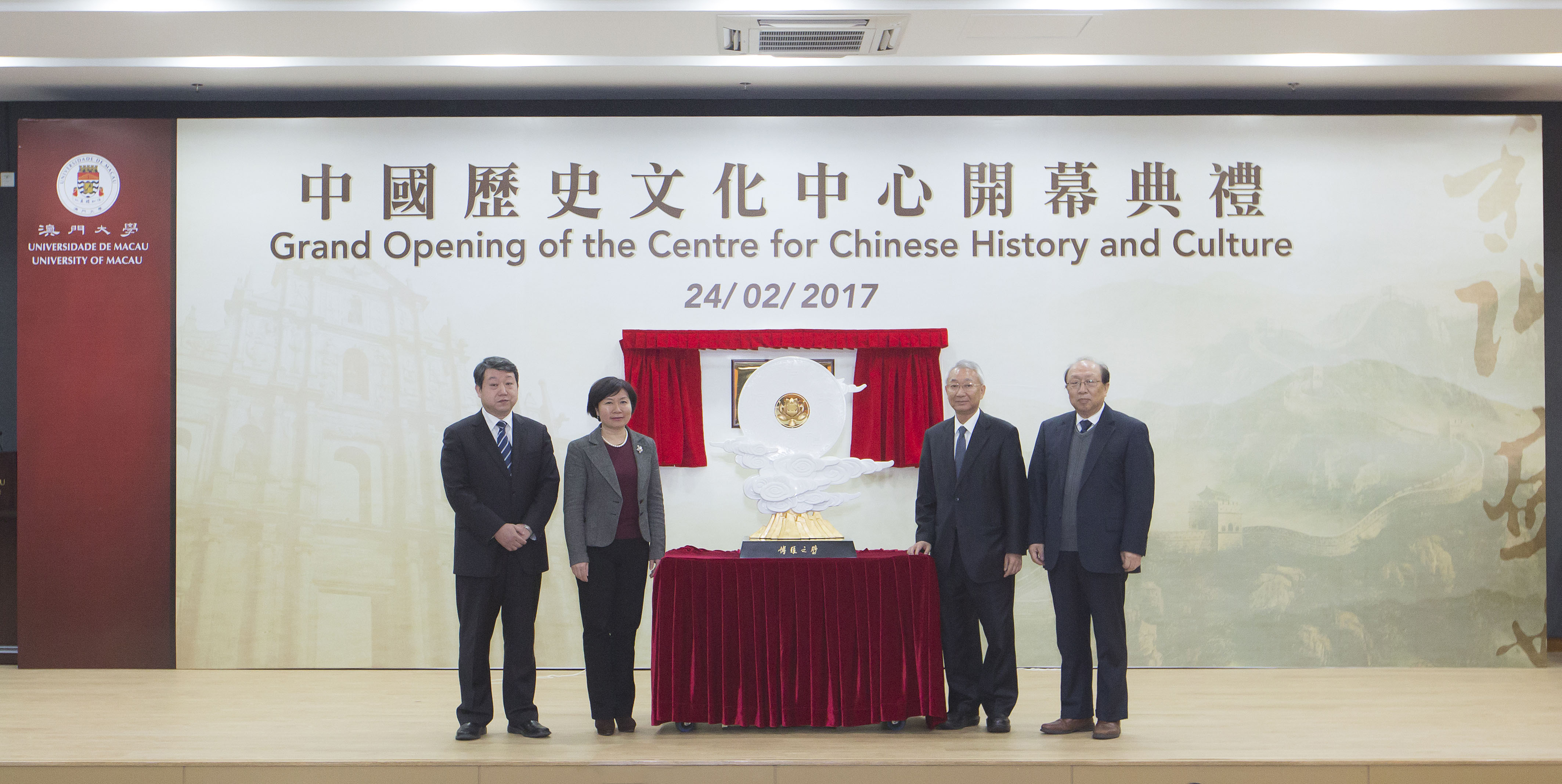The University of Macau (UM) today (24 February) held an inauguration ceremony for its Centre for Chinese History and Culture. The centre aims to promote research in Chinese history and culture, increase the dissemination and influence of Chinese history and culture in Portuguese-speaking countries, and enhance Macao residents’ understanding of Chinese history and culture. Chan Hoi Fan, acting chief executive of the Macao SAR, believes that the establishment of the centre will enable UM to consolidate its resources and maximise its strengths in order to make a strong contribution to the study and promotion of Chinese history and culture.
Officiating guests at the inauguration ceremony were Chan Hoi Fan, acting chief executive of the Macao SAR; Wang Zhimin, director of the Liaison Office of the Central People’s Government in the Macao SAR; Xue Xiaofeng, deputy director of the Liaison Office of the Central People’s Government in the Macao SAR; Tam Chon Weng, secretary for social affairs and culture of the Macao SAR; Liu Jin, director of the Hong Kong, Macao and Taiwan Affairs Office of the Ministry of Education; Liu Guiqin, director of the Department of Social Sciences of the Ministry of Education; Lam Kam Seng, chair of UM’s University Council; Wei Zhao, rector of UM; and Hao Yufan, dean of UM’s Faculty of Social Sciences.
Chan Hoi Fan said in her speech that Macao is an important ‘bridge’ connecting China and Portuguese-speaking countries. For this reason, developing research in Chinese history and culture in Macao will directly contribute to the dissemination of Chinese culture in Portuguese-speaking countries, which will increase the international exchange and influence of Chinese culture. Chan believes that the Centre for Chinese History and Culture will provide a good platform for young people to learn about Chinese history and culture. She added that since its establishment, UM has made a lot of effort in increasing its teaching and research capacity in the field, and the university now possesses not only first-class facilities but also a core group of nationally and internationally known experts and scholars. She expressed confidence that the establishment of the centre will enable the university to consolidate its resources and maximise its strengths in order to make a strong contribution to the study and promotion of Chinese history and culture.
Xue Xiaofeng said that the culture of Macao has the same origin as Chinese culture, Lingnan culture, and especially Xiangshan culture. He added that since its establishment as a trading port, Macao has been an important hub for economic and cultural exchange between China and Western countries, where Chinese and Western cultures coexist in harmony, and the city is of academic and research importance. Xue added that he has four expectations for the Centre for Chinese History and Culture. First, he hopes that the centre can help to promote traditional Chinese culture and become an important platform for cultivating patriotism, tolerance, and practicality among Macao’s youth. Second, he hopes the centre grasps the opportunity offered by Macao’s ‘One Centre, One Platform’ policy and take part in China’s ‘One Belt, One Road’ strategy, adding that the centre is crucial for disseminating Chinese history and culture and demonstrating the vitality of the ‘One Country, Two Systems’ policy to overseas countries, especially Portuguese-speaking countries. Third, Xue hopes that the centre can make full use of the advantages of Macao as a melting pot of Chinese and Western cultures to foster greater confidence in Chinese history and culture. Fourth, Xue hopes that the centre can maximise UM’s strengths in its academic disciplines and help the university consolidate its resources in disciplines such as social sciences, arts and humanities, and education. He also hopes that the centre can help to nurture local teachers in the humanities and provide course materials in Chinese history and geography for local secondary and primary schools.
Wei Zhao said that the Centre for Chinese History and Culture belongs not only to UM, but also to Macao, China, and the world. He added that as a flagship higher education institution in Macao, China, UM has the responsibility to promote the study and the development of Chinese history and culture. He also said that faculty members and students should use their knowledge of history and their research achievements to strengthen the interaction between China and the rest of the world, as a means of further implementing China’s policy to promote Chinese culture abroad.
The Centre for Chinese History and Culture has been listed by the Ministry of Education as a key research platform in the areas of humanities and social sciences. UM will jointly develop this state-level research platform with Tsinghua University and East China Normal University. During the ceremony, representatives of the three universities signed a letter of intent under the witness of more than 100 guests. The universities will collaborate with one another in promoting academic exchange and research activities in the areas of Chinese history and culture.
Media Contact Information:
Communications Office, University of Macau
Albee Lei Tel:(853) 88228004
Kelvin U Tel:(853) 88224322
Email:prs.media@um.edu.mo
UM Website:www.umac.mo

